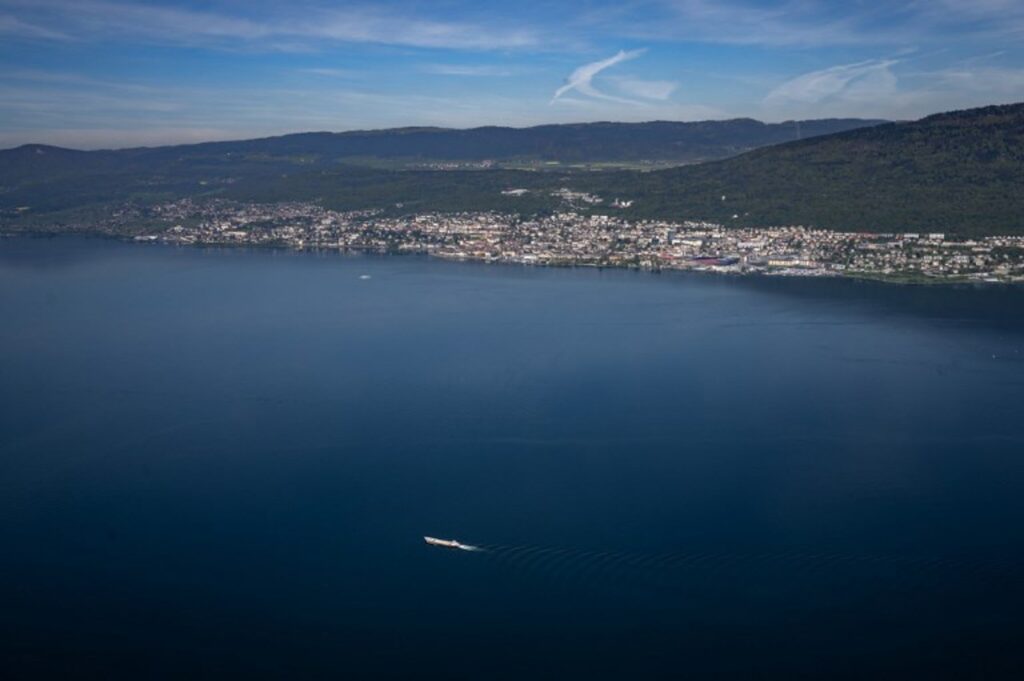Water levels are dropping in over half the world’s lakes and reservoirs, threatening a vital source of fresh water, according to a new study.
The researchers largely attribute the trend to global warming and excessive use of water by humans.
About a quarter of the world’s population "lives in a lake basin that is on a declining trend," the study, published in the prestigious journal Science, warned on Thursday.
'Lakes are in trouble globally'
“Lakes are in trouble globally, and it has implications far and wide,” Balaji Rajagopalan, a professor at the University of Colorado Boulder and co-author of the study, told French news agency AFP. "They allow societies and humanity to live, yet they do not get the respect they deserve."
Lakes cover about 3% of the Earth’s surface, but account for 87 % of its liquid freshwater. They are used for human consumption, agriculture, and even power generation.
Previous work has already looked at the decline of each of the world’s largest lakes. However, this study is the first to offer a detailed view of global trends, and the causes of the changes observed, using satellite observations.
Losing water even in wetlands
The researchers studied a total of 1,972 bodies of water, representing the vast majority of natural lakes (focusing on those larger than 100 km2) and reservoirs. Over the nearly 30-year period studied (from 1992 to 2020), the researchers concluded that 603 cubic kilometres of water were lost, equivalent to the entire water consumption of the United States in 2015.
The study includes an unexpected finding: lakes are losing water not only in arid areas, but also in wetlands.
“It is generally considered that when the climate warms up, arid regions dry up even more, and wet regions get wetter,” Balaji Rajagopalan explained. But even in the latter, lakes are declining, which is “surprising,” he pointed out, citing the example of India.
To determine the causes of the observed trends, the scientists subdivided their analysis according to the type of water body.
Nearly two-thirds of large reservoirs are in decline
For natural lakes, they attribute about half of the water loss to human activity and rising temperatures, which cause increased evaporation, a factor linked to climate change.
Another important factor, namely lack of precipitation, “can also be attributed to climate change in some places,” noted Balaji Rajagopalan. In addition, humans or herds may have to consume more water because of higher temperatures.
“Clearly, the footprint of climate change is already there,” the researcher said.
As for reservoirs, the construction of new dams has increased their overall water volume, but nearly two-thirds of large reservoirs are in decline.
Sediment accumulation was the main factor reducing their storage capacity, although droughts also affected some, as in the southwestern United States.
'It's not too late'
The consequences of this decline are many. Lack of water can lead to population displacement. Water quality can also be affected if a lake’s level is low.
Lakes, like oceans, also store carbon, and no longer play this role when they disappear, in turn exacerbating global warming.
However, the researchers’ message is not a fatalistic one. On the contrary, they seek to raise awareness. For some lakes, “it’s not too late to intervene,” Balaji Rajagopalan stressed. Decision-makers are now “armed with information.”
An interactive map has been created from the study’s findings, detailing the trend observed for each lake.
More moniroring and follow-up
A global decline in water availability is worrisome, but it should not overshadow regional differences, Hilary Dugan, a limnology specialist at the University of Wisconsin at Madison, told AFP. Understanding lake-by-lake variations will give managers a better understanding of the risks in their jurisdiction, Dugan said.
The study’s authors advocate more monitoring and follow-up, especially of smaller lakes receiving less attention. They also call for management at the regional level, considering several lakes at once, along the lines of the way rivers are managed by several jurisdictions at once.
Finally, they stress the importance of preventive measures, such as switching to another water source if a lake’s water reaches a critical level.
“Lakes are critically important. We have to take care of them, and they will take care of us,” Balaji Rajagopalan stressed.

